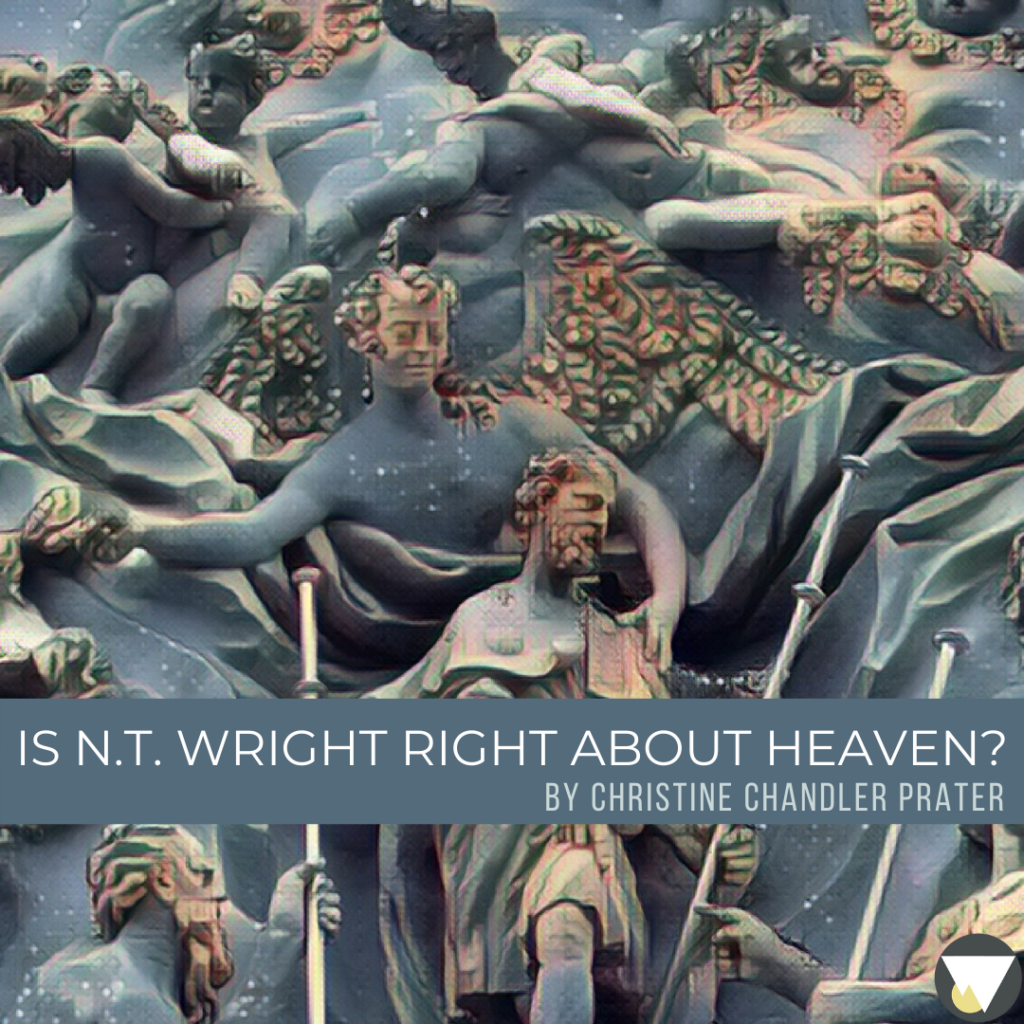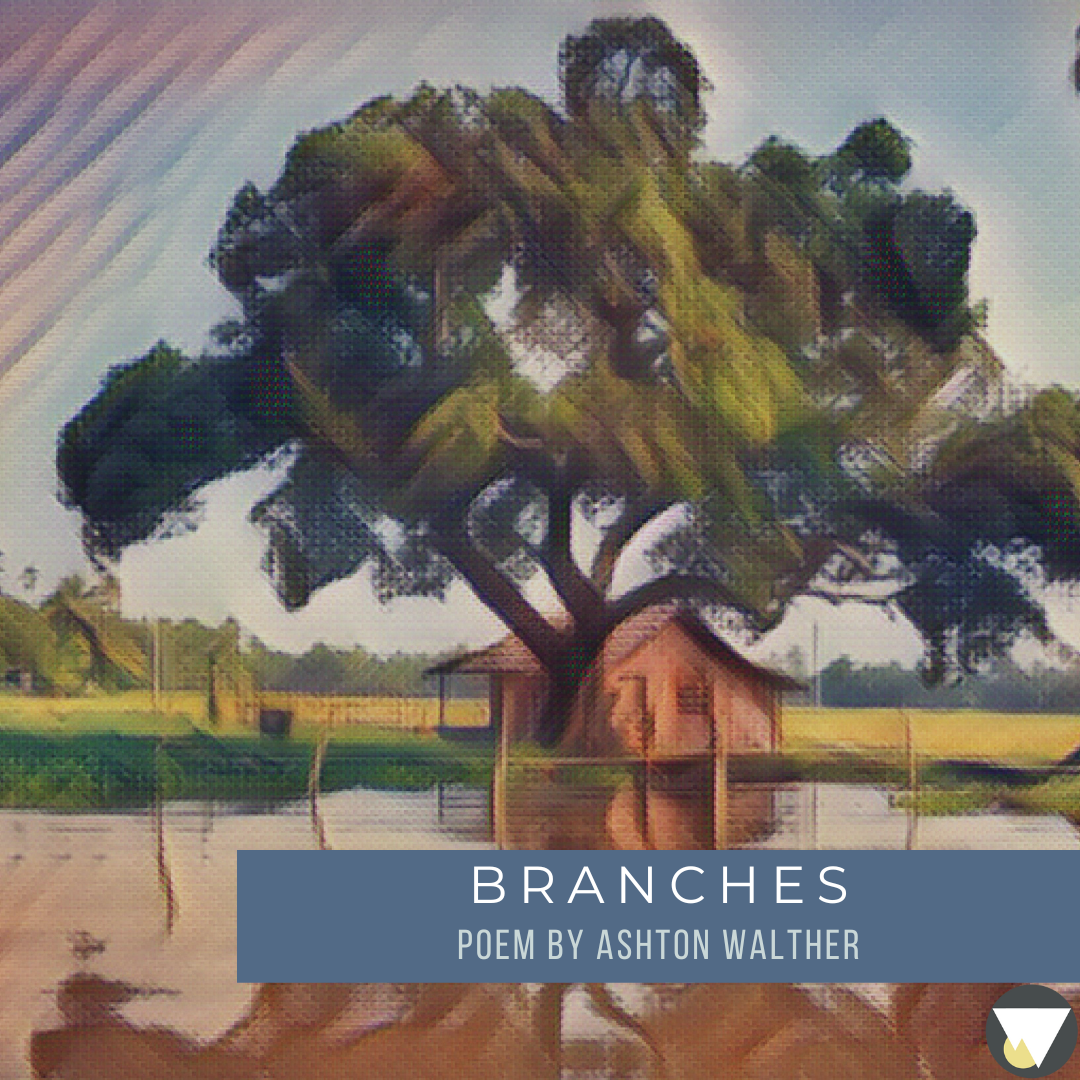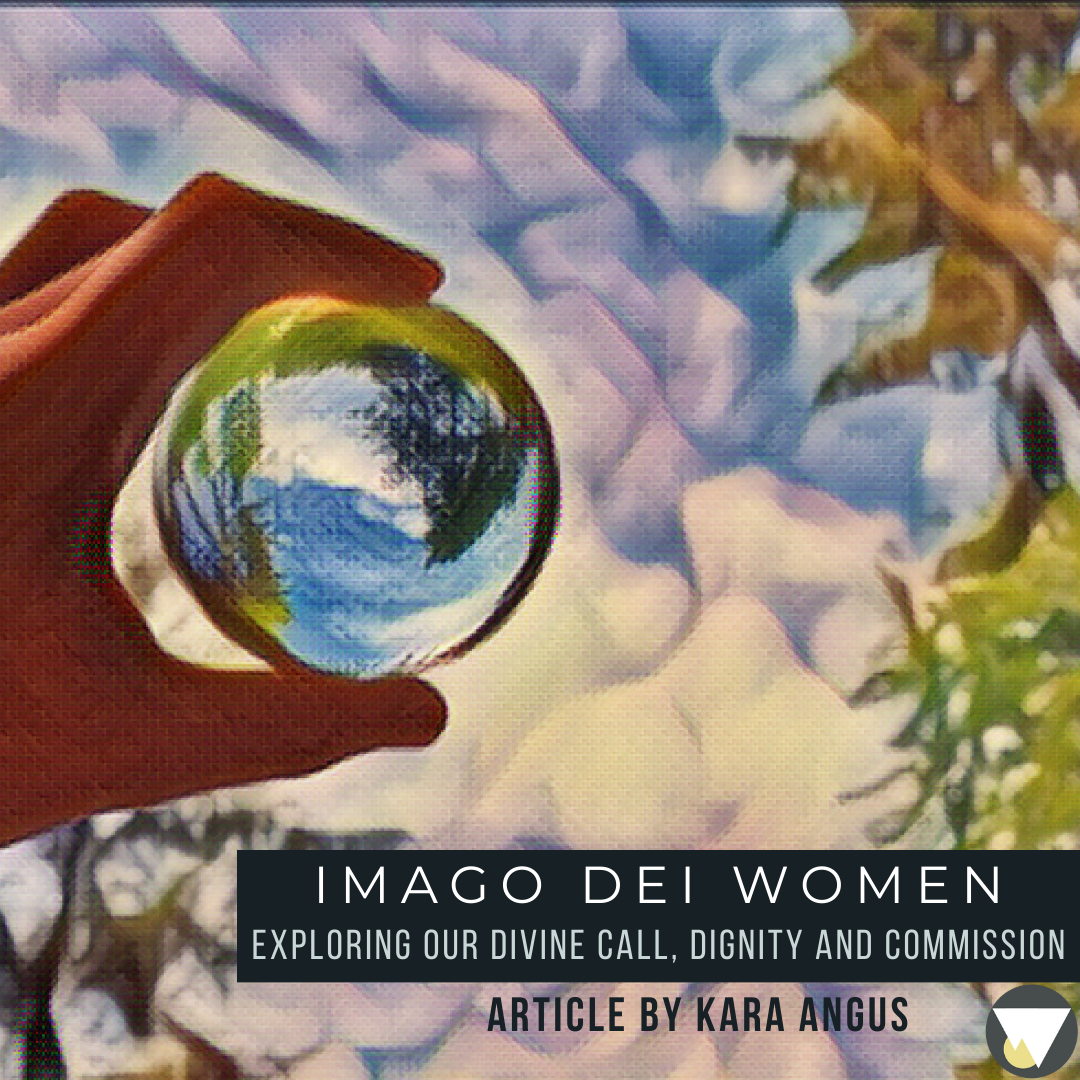Is N.T. Wright Right About Heaven?
by Christine Chandler Prater

No one has more profoundly shifted my understanding of Jesus’s teaching than Jesus himself, of course. But N.T. Wright runs a close second.
For reasons I don’t quite understand, we don’t hear much about Wright in the Evangelical spaces. So when I first happened upon his research and writings, I thought I had discovered some obscure theological genius. (For those of you who are familiar with him, feel free to marvel at my ignorance.) As it turns out, Tom—as I like to call him now that he is my newest theological crush—is kind of a big deal, particularly in protestant circles and especially in Anglican ones. He is, in fact, not only lauded as one of the world’s leading Bible scholars, he once held the jaunty little title of Bishop of Durham in The Church of England. #NBD
My initial encounter with Wright’s research came through Surprised by Hope: Rethinking Heaven, the Resurrection, and the Mission of the Church. That book shocked and shifted my understanding of heaven and eternal life in a way that at first felt disorienting, then finally joy-inducing (because, as it turns out, folk theology doesn’t hold a candle to the real story.) Wright opened up a wider vision of scripture to me that revealed that the eternal life we are promised through Jesus is vastly more dynamic (and organic) than the dumbed-down-to-tidy version of heaven I had been sold in Vacation Bible School. (Please don’t misunderstand: This is no shade to VBS or even adult evangelical teaching. It is, however, an acknowledgment of the natural byproduct of the human endeavor to boil down a mind-blowing God and his earth-shattering renewing plan for this world to better fit into soundbites and three-point sermons.)
Wright’s work has shown me that there is a bigger, truer version to be told of the biggest, truest story. And to my absolute delight, a deeper dive into the ACTUAL promise of eternal life not only makes death more palatable, it also makes earthly life more bearable. In fact, it makes it downright ABUNDANT, which seems important since Jesus also made that bold promise in John 10:10.
This leads me to wonder: When, where, and why did we form the false dichotomy between eternal life and abundant life? And what are we doing to correct the folk-theology fallout that has eventuated a diminished view of both? How can we help cure the world of a myopic view of God’s promises and shift the narrative to reflect the actual redemptive narrative in scripture better?
N.T. Wright has been pioneering this effort for decades.
Further Bible research and reading of his works such as Simply Jesus and How God Became King, has certainly stretched, challenged, and ameliorated my understanding of Jesus’ teaching in many ways, and to be honest, I have not always appreciated the experience. I used to be rather uncomfortable with those sensations, but then I remembered that I don’t wish to follow or worship my own understanding of God, but God himself. So instead of being defensive about my own understanding, I decided to practice discernment while also allowing myself to be curious (and corrected.) The result? I find myself more soundly convinced of the truth and goodness of God and more in awe of and in love with him than ever before.
I don’t wish to follow or worship my own understanding of God, but God himself.
I would love to summarize Wright’s scriptural insights and the subsequent vision of God’s redemptive plan for the world, but I hate to dilute the richness of his wisdom. Instead, I will wet your whistle with a few thought-provoking quotes from Tom and link to the books that have most shifted my understanding and deepened my faith.
For if God intends to renew the whole creation—and if this has already begun in Jesus’s resurrection—the church cannot stop at “saving souls” but must anticipate the eventual renewal by working for God’s kingdom in the wider world, bringing healing and hope in the present life.
N.T. Wright, Surprised by Hope
Made for spirituality, we wallow in introspection. Made for joy, we settle for pleasure. Made for justice, we clamor for vengeance. Made for relationship, we insist on our own way. Made for beauty, we are satisfied with sentiment. But new creation has already begun. The sun has begun to rise. Christians are called to leave behind, in the tomb of Jesus Christ, all that belongs to the brokenness and incompleteness of the present world … That, quite simply, is what it means to be Christian: to follow Jesus Christ into the new world, God’s new world, which he has thrown open before us.
N.T. Wright, Simply Christian
The early Christians did not believe in progress. They did not think the world was getting better and better under its own steam—or even under the steady influence of God. They knew God had to do something fresh to put it to rights. But neither did they believe that the world was getting worse and worse and that their task was to escape it altogether. They were not dualists. Since most people who think about these things today tend toward one or other of those two points of view, it comes as something of a surprise to discover that the early Christians held a quite different view. They believed that God was going to do for the whole cosmos what he had done for Jesus at Easter.
N.T. Wright, Surprised by Hope
I would love to hear from you! Have you read any of Tom's work? Do you think Wright is right about heaven?

CHRISTINE CHANDLER PRATER
Christine is a poet, lyricist, theology geek, and founder of The Holy Shift. She is a graduate of Dallas Theological Seminary and loves to ponder tough questions and challenging truths through art, story, and humor. Christine lives near Austin, Texas with her hunky hubby and two fur-babies (one sinner, one saint). She’s an awkward-conversations enthusiast and loves anything that takes place outdoors. Or requires words.






